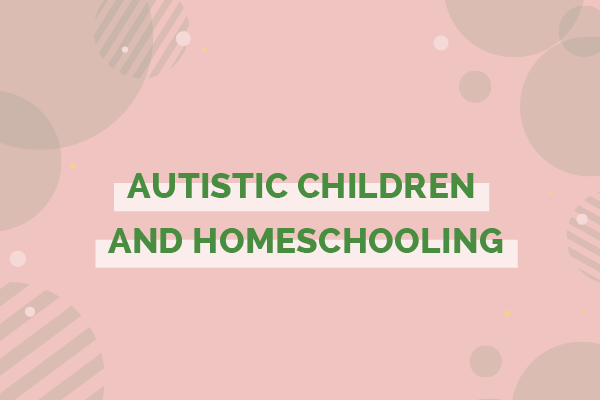
Autistic children and homeschooling
There comes a time when every child reaches school age and all parents seek to choose the best possible educational program that will allow their child to reach their full potential. Children suffering from autism spectrum disorder (ASD) are no different, but schooling for children with special needs carries its own challenges. The options on offer are usually limited to public/private schooling or homeschooling. First, let’s take a look at the regular educational system and how it serves an autistic child.
What are the challenges facing the traditional schooling system?
Parents might consider enrolling their autistic child in a regular school system for many reasons, one of which is socialization. However, the reality often doesn’t correspond with their expectations, for the following reasons:
- Classes are often too large for a teacher to give special attention to a child with special needs.
- Traditional teaching methods used in most schools involve a lot of listening, sitting still in silence, and not enough breaks.
- Traditional schools may lack the resources to provide proper support for an autistic child. They may not have teachers trained to deal with ASD or special equipment, such as laptops.
- Schools are very noisy places and loud sounds can be upsetting to children with autism (school bells, screaming during recess,...).
- There’s also the socialization issue, the very reason many parents choose traditional schooling. A child with autism, whose disorder-related behavior makes them stand out, can suffer teasing and bullying at the hands of their peers. Children with autism often focus on one subject and talk about it continuously. They have difficulty establishing eye contact or carrying on a conversation. Autistic children are often satisfied to sit by themselves, which can contribute to their isolation.
The other option for ASD children in the traditional school setting is the special education classrooms. The concept of inclusion being very new, and stigma still being a real issue in the Middle East, very few schools offer special education classes, and when they do, the classroom includes children with all kinds of disabilities, not just autistic children who require unique, customized teaching methods.
How does homeschooling cater for the needs of a child with autism?
Homeschooling has many advantaged in regards to helping children with autism reach their full potential:
- Many autistic children are good at music, drawing, and numbers, in addition to everything computer-related. These areas of interest can be incorporated into learning. Children with ASD often fixate on one or two specific topics. For example, if the child is focused on puzzles, a parent can use them as a way to teach maths and reading.
- Many parents wonder if homeschooling might isolate their autistic child. The answer is not necessarily. Homeschooled children can take part in group activities such as drawing or music lessons, sports, etc. However, they should not be necessarily paired with others their own age, as an autistic child can stick out due to his/her delays. Homeschooled children can socialize also in more natural social settings, with people in their own entourage, such as family gatherings, shopping and going to the library or playground.
How do you homeschool a child with ASD?
Here’s a list of what you can do best:
- Begin by looking for community support. Search for and contact other parents of homeschoolers online, including groups on social media platforms.
- Review your child’s medical/educational records; take into consideration their needs, weaknesses, strengths and interests.
- Allow your child do his/her own learning. Provide aids and materials to nurture his/her interests and hobbies.
- Keep a daily journal of your child’s activities and track their progress.
- Locate specialized centers and therapists to assist your child on motor skills, speech and social skills.
Homeschooling a child with ASD requires lots of patience and dedication. so If, after studying your options, you find that homeschooling does not work either for you or your autistic child, you may need to consider other alternatives, such as special learning centers.




